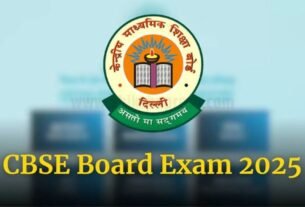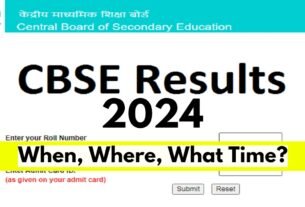NEET Twice a Year : The National Eligibility cum Entrance Test (NEET) stands as a pivotal examination that serves as the gateway for aspiring medical students in India. Established to streamline the admissions process for undergraduate medical courses, NEET plays a vital role in determining which candidates gain entry into coveted medical schools across the country. Conducted annually, this standardized test evaluates the aptitude and knowledge of prospective doctors in key subjects, including Physics, Chemistry, and Biology.

NEET’s significance cannot be overstated; it ensures a uniform criterion for evaluating candidates nationwide, facilitating fair competition and maintaining academic integrity within the medical education system. The test’s format consists of multiple-choice questions, allowing for a systematic assessment of the students’ understanding and application of scientific principles. As many as 15 lakh candidates participate each year, underscoring the examination’s critical nature in shaping the future of countless students.
With its annual frequency, NEET has become ingrained in the academic journey of aspiring medical professionals. Students dedicate significant time and resources to preparing for this crucial examination, which influences not just admissions but also their subsequent academic and professional trajectories. The pressure associated with a single opportunity each year can be immense, as candidates must perform at their best on that one specific date.
While discussions around the possibility of conducting NEET twice a year have arisen, the current practice remains anchored in an annual schedule. This decision impacts students’ preparation strategies and stress levels, creating a unique environment characterized by both challenge and ambition. As such, the NEET plays an essential role in the medical landscape of India, shaping the discourse around educational policies and the future of health professionals in the country.
The Plea for Conducting NEET Twice a Year
In recent developments, the Delhi High Court was approached with a plea requesting that the National Eligibility cum Entrance Test (NEET) be conducted twice a year. This petition was submitted by a group of stakeholders, primarily students and their parents, who articulated several justifications for such a change. The primary arguments revolved around alleviating student anxiety and the need for sufficient preparation time, which has become increasingly pressing in the competitive landscape of medical entrance exams.
The rationale behind the appeal is significant, particularly as students often face immense pressure during a single NEET examination. Advocates of conducting NEET more than once argue that offering multiple attempts would allow candidates to showcase their real potential. It is believed that doing so could lead to enhanced scores, providing a fairer opportunity for those who may not perform optimally in a single exam setting. Furthermore, proponents highlighted that the additional attempt could reduce the associated mental health challenges caused by high-stakes testing, enabling a more equitable approach to medical education admissions.
Past attempts to reform the frequency of NEET have emerged periodically, showcasing a clear trend of rising demand for flexibility within the examination framework. Various stakeholders have also drawn parallels to other competitive examinations that allow candidates to sit for tests multiple times within a year. Such comparisons showcase the advantages of increased opportunities for candidates to refine their skills and knowledge in the pursuit of their aspirations.
Despite the merits presented in the plea, the Delhi High Court ultimately determined that decisions regarding the scheduling of NEET fall under the purview of the government, thus reinforcing the importance of policy decisions that must align with broader educational frameworks. The ruling underscores the complexities involved in modifying established examination protocols in response to stakeholder requests.
Delhi High Court’s Ruling and Reasoning : NEET Twice a Year
The recent ruling by the Delhi High Court has attracted considerable attention in the education sector, particularly concerning the National Eligibility cum Entrance Test (NEET). The court rejected a plea requesting that NEET be conducted twice annually, emphasizing that such a decision falls within the ambit of government policy and should not be subjected to judicial review. The High Court’s stance reflected a respect for the administrative and management strategies essential for the effective execution of the examination process.
During the proceedings, the court underscored that the singular structure of NEET, which has been in place, plays a crucial role in maintaining a uniform standard across various medical institutions. The ruling articulated that any changes to this established framework should be initiated through proper legislative or administrative channels rather than through judicial intervention. By placing the decision firmly in the hands of the government, the court aimed to uphold the principle of separation of powers, ensuring that judicial roles do not encroach upon policy-making.
The judges remarked on the potential implications of conducting NEET twice a year, suggesting that frequent changes could lead to a disruption in the standardized testing process. Such moves might complicate the examination landscape, ultimately affecting students’ preparedness and the overall quality of assessments. The court noted, “The integrity of a single, well-regulated examination system is paramount for ensuring parity in assessment among aspiring candidates.” This statement encapsulated the court’s commitment to a stable and rigorous process for evaluating medical aspirants.
In conclusion, the decision by the Delhi High Court affirms the current framework of NEET, highlighting the importance of maintaining a consistent examination strategy while reaffirming the necessity of governmental oversight in educational policy matters.
Implications of the Court’s Decision
The recent ruling by the Delhi High Court to reject the plea for conducting the National Eligibility cum Entrance Test (NEET) twice a year carries significant implications for various stakeholders in the education sector, particularly students and educational institutions. Students aiming for admission into medical colleges have long advocated for a more flexible examination schedule to alleviate the pressure of a single examination day. The court’s decision highlights the ongoing challenges faced by these aspirants within the framework of a rigid examination system, where a single opportunity each year can determine their future in the healthcare sector.
Furthermore, this ruling raises questions about the government’s role in educational reforms and policy decisions that impact the standardization of entrance exams. By reaffirming the current examination schedule, the court not only endorses the status quo but also emphasizes the necessity for systemic solutions to address student anxieties and pressures associated with NEET. This may incite reactions from various stakeholders, including students, parents, and educational bodies, prompting calls for policy changes that could enhance accessibility and fairness in the admission process.
Educational institutions, particularly those with a vested interest in the medical field, might also reevaluate their recruitment and training approaches in light of this decision. As the healthcare sector continues to evolve, the implications of a singular NEET exam could hinder the entry of diverse talent into medical education, impacting future healthcare delivery in India.
In time, this ruling may lead stakeholders to explore alternative pathways for reforming the admission process. As discussions surrounding the examination system continue to evolve, the emphasis on governmental accountability and constructive policy changes will become paramount for improving the educational landscape in India.





